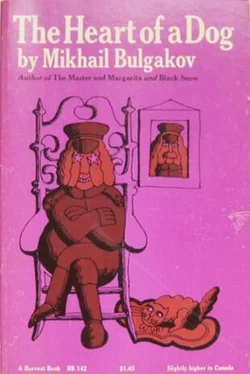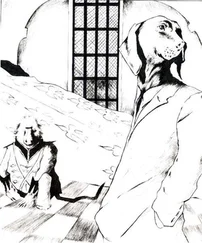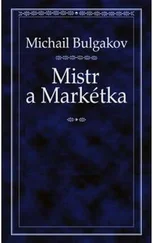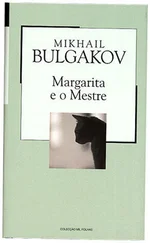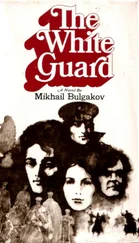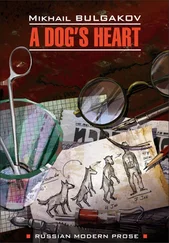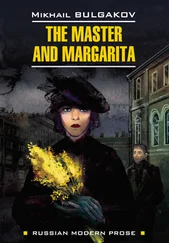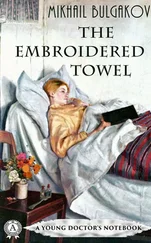‘You’re right, I don’t like the proletariat,’ agreed Philip Philipovich sadly, and pressed a button. A bell rang in the distance. The door opened on to the corridor.
‘Zina!’ shouted Philip Philipovich. ‘Serve the supper, please. Do you mind, ladies and gentlemen?’
Silently the four left the study, silently they trooped down the passage and through the hall. The front door closed loudly and heavily behind them.
The dog rose on his hind legs in front of Philip Philipovich and performed obeisance to him.
On gorgeous flowered plates with wide black rims lay thin slices of salmon and soused eel; a slab of over-ripe cheese on a heavy wooden platter, and in a silver bowl packed around with snow — caviare. Beside the plates stood delicate glasses and three crystal decanters of different-coloured vodkas. All these objects were on a small marble table, handily placed beside the huge carved oak sideboard which shone with glass and silver. In the middle of the room was a table, heavy as a gravestone and covered with a white tablecloth set with two places, napkins folded into the shape of papal tiaras, and three dark bottles.
Zina brought in a covered silver dish beneath which something bubbled. The dish gave off such a smell that the dog’s mouth immediately filled with saliva. The gardens of Semiramis! he thought as he thumped the floor with his tail.
‘Bring it here,’ ordered Philip Philipovich greedily. ‘I beg you, Doctor Bormenthal, leave the caviare alone. And if you want a piece of good advice, don’t touch the English vodka but drink the ordinary Russian stuff.’
The handsome Bormenthal — who had taken off his white coat and was wearing a smart black suit — shrugged his broad shoulders, smirked politely and poured out a glass of clear vodka.
‘What make is it?’ he enquired.
‘Bless you, my dear fellow,’ replied his host, ‘it’s pure alcohol. Darya Petrovna makes the most excellent homemade vodka.’
‘But surely, Philip Philipovich, everybody says that 30-degree vodka is quite good enough.’
‘Vodka should be at least 40 degrees, not 30 — that’s firstly,’ Philip Philipovich interrupted him didactically, ‘and secondly — God knows what muck they make into vodka nowadays. What do you think they use?’
‘Anything they like,’ said the other doctor firmly.
‘I quite agree,’ said Philip Philipovich and hurled the contents of his glass down his throat in one gulp. ‘Ah… m’m… Doctor Bormenthal — please drink that at once and if you ask me what it is, I’m your enemy for life. “From Granada to Seville…”’
With these words he speared something like a little piece of black bread on his silver fish-fork. Bormenthal followed his example. Philip Philipovich’s eyes shone.
‘Not bad, eh?’ asked Philip Philipovich, chewing. ‘Is it? Tell me, doctor.’
‘It’s excellent,’ replied the doctor sincerely.
‘So I should think… Kindly note, Ivan Arnoldovich, that the only people who eat cold hors d’oeuvres nowadays are the few remaining landlords who haven’t had their throats cut. Anybody with a spark of self-respect takes his hors d’oeuvres hot. And of all the hot hors d’oeuvres in Moscow this is the best. Once they used to do them magnificently at the Slavyansky Bazaar restaurant. There, you can have some too.’
‘If you feed a dog at table,’ said a woman’s voice, ‘you won’t get him out of here afterwards for love or money.’
‘I don’t mind. The poor thing’s hungry.’ On the point of his fork Pliilip Philipovich handed the dog a tit-bit, which the animal took with the dexterity of a conjuror. The professor then threw the fork with a clatter into the slop-basin.
The dishes now steamed with an odour of lobster; the dog sat in the shadow of the tablecloth with the look of a sentry by a powder magazine as Philip Philipovich, thrusting the end of a thick napkin into his collar, boomed on:
‘Food, Ivan Arnoldovich, is a subtle thing. One must know how to eat, yet just think — most people don’t know how to eat at all. One must not only know what to eat, but when and how.’ (Philip Philipovich waved his fork meaningfully.) ‘And what to say while you’re eating. Yes, my dear sir. If you care about your digestion, my advice is — don’t talk about bolshevism or medicine at table. And, God forbid — never read Soviet newspapers before dinner.’
‘M’mm… But there are no other newspapers.’
‘In that case don’t read any at all. Do you know I once made thirty tests in my clinic. And what do you think? The patients who never read newspapers felt excellent. Those whom I specially made read Pravda all lost weight.
‘H’m…’ rejoined Bormenthal with interest, turning gently pink from the soup and the wine.
‘And not only did they lose weight. Their knee reflexes were retarded, they lost appetite and exhibited general depression.’
‘Good heavens…’
‘Yes, my dear sir. But listen to me — I’m talking about medicine!’
Leaning back, Philip Philipovich rang the bell and Zina appeared through the cerise portiere. The dog was given a thick, white piece of sturgeon, which he did not like, then immediately afterwards a chunk of underdone roast beef. When he had gulped it down the dog suddenly felt that he wanted to sleep and could not bear the sight of any more food. Strange feeling, he thought, blinking his heavy eyelids, it’s as if my eyes won’t look at food any longer. As for smoking after they’ve eaten — that’s crazy.
The dining-room was filling with unpleasant blue smoke. The animal dozed, its head on its forepaws. ‘Saint Julien is a very decent wine,’ the dog heard sleepily, ‘but there’s none of it to be had any more.’
A dull mutter of voices in chorus, muffled by the ceiling and carpets, was heard coming from above and to one side.
Philip Philipovich rang for Zina. ‘Zina my dear, what’s that noise?’
‘They’re having another general meeting, Philip Philipovich,’ replied Zina.
‘What, again?’ exclaimed Philip Philipovich mournfully. ‘Well, this is the end of this house. I’ll have to go away -but where to? I can see exactly what’ll happen. First of all there’ll be community singing in the evening, then the pipes will freeze in the lavatories, then the central heating boiler will blow up and so on. This is the end.’
‘Philip Philipovich worries himself to death,’ said Zina with a smile as she cleared away a pile of plates.
‘How can I help it?’ exploded Philip Philipovich. ‘Don’t you know what this house used to be like?’
‘You take too black a view of things, Philip Philipovich,’ objected the handsome Bormenthal. ‘There is a considerable change for the better now.’
‘My dear fellow, you know me, don’t you? I am a man of facts, a man who observes. I’m the enemy of unsupported hypotheses. And I’m known as such not only in Russia but in Europe too. If I say something, that means that it is based on some fact from which I draw my conclusions. Now there’s a fact for you: there is a hat-stand and a rack for boots and galoshes in this house.’
‘Interesting…’
Galoshes — hell. Who cares about galoshes, thought the dog, but he’s a great fellow all the same.
‘Yes, a rack for galoshes. I have been living in this house since 1903. And from then until March 1917 there was not one case — let me underline in red pencil not one case — of a single pair of galoshes disappearing from that rack even when the front door was open. There are, kindly note, twelve flats in this house and a constant stream of people coming to my consulting-rooms. One fine day in March 1917 all the galoshes disappeared, including two pairs of mine, three walking sticks, an overcoat and the porter’s samovar. And since then the rack has ceased to exist. And I won’t mention the boiler. The rule apparently is — once a social revolution takes place there’s no need to stoke the boiler. But I ask you: why, when this whole business started, should everybody suddenly start clumping up and down the marble staircase in dirty galoshes and felt boots? Why must we now keep our galoshes under lock and key? And put a soldier on guard over them to prevent them from being stolen? Why has the carpet been removed from the front staircase? Did Marx forbid people to keep their staircases carpeted? Did Karl Marx say anywhere that the front door of No. 2 Kalabukhov House in Prechistenka Street must be boarded up so that people have to go round and come in by the back door? WTiat good does it do anybody? Why can’t the proletarians leave their galoshes downstairs instead of dirtying the staircase?’
Читать дальше
